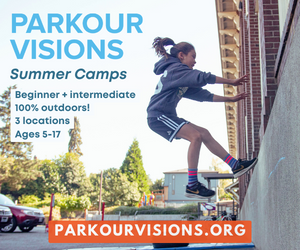Hoping your kids will move out someday? Yeah, me too. A month ago my youngest moved to another state and I thought, for the third time, that I’d have an empty nest. But no.

Honestly, I was ambivalent about them moving away. As a single person, my kids have provided me with company, entertainment, and occasional flashes of drama. In short, I like having them around! But as they moved into their 20’s I was ready for something new.
Travel? Relocation? A new career? I was eager to start my next chapter, to enjoy that empty nest.
But, as in the famous song about the cat, they just kept coming back.
To be clear, they do not want to live under my roof. They’re smart, hard-working, and eager to be fully independent adults. But things keep getting in the way; pandemic, economy, housing prices…
So they come back to roost.
It’s been nice having them around over the past couple of years, in part because we’ve set ourselves up for success. Here are my top tips for living with your young adults.
1. Treat Them Like The Adults They Are.
That means that you refrain from commenting on their clothing, appearance, relationships, time spent on screens, and general hours of operation. No treating them like they’re still in high school. If you wouldn’t say it to a friend, don’t say it to your kid.
In return, you may charge them rent! And ask them to contribute to other expenses. And make it clear that they’re expected to help keep the place clean and running smoothly.
The rule in my house is that if you’re in school you live rent-free, and if you’re not in school you have a job and pay me a nominal amount in rent each month. My goal is to help them save enough to move out, so I charge them just enough to remind them that they’re grown-ups now.

2. Give Each Other S P A C E
During the early days of the pandemic, I spoke with a friend who has much younger children. She was shocked to hear that my daughters and I didn’t eat dinner together. I’d always been a huge proponent of family dinner.
But these kids are grown up! We like different food and tend to eat at different times. We do occasionally share meals, but it’s not an expectation. Kind of like when I had roommates. Nor do we expect to keep one another company – which doesn’t mean we don’t spend time together. We do. But I assume they’re occupied and happy to be left alone.
It’s hard for kids in their 20’s to end up back with their parents. I want them to be as independent as possible, and that means letting them live their own lives. I want my space too! I’ve been a single parent for 18 years – it’s nice to step back from actively parenting all the time. I’m here for them, but I’m loving my own independence.
3. Open Your Mind As Wide As You Can
Your kids are turning into adults. Which means they may be turning away from some of the attitudes and activities and even values you’ve come to expect. If they’re over 21 they may drink, they may smoke pot – it’s legal, after all. They may be exploring gender and sexuality in ways that make you uncomfortable.
It has been my experience that approaching these issues with curiosity is incredibly helpful. Let them tell you how they feel before you tell them what you think.
Every family is different, and if there are lines you can’t bear to have your children cross while they’re living with you, then this next one is possibly the most important:
4. Set Expectations
This is particularly helpful if your kid has been living away from home for a while. For example, if she’s used to coming and going as she pleases, she might balk at the idea of being constantly asked about her whereabouts.
My kids don’t have curfews (because they’re adults!) but I do ask them to text me when they get home, or to let me know if they’re staying with a friend. Because I WORRY.
Working through that one with my youngest strengthened our relationship. I was able to express that although I trust her and recognize her autonomy, as her mom I’m going to start to panic if she’s out and about and not answering her texts at 3:00 am. She realized that part of being an effective adult is caring for the people around her.
If you’re expecting your son to clean the bathroom weekly because that’s what he did in high school, you’d better let him know. If he thinks you’re going to do his laundry because he’s back in his old room, you’ll want to disabuse him of that notion pretty quickly.
Talk about what you all want out of this situation! Assumptions are natural but ultimately unhelpful.

Some of our kids are going to live at home for longer than anyone expected; this trend is unlikely to reverse as long as wages are low and rents (and loan repayments) are high. With love, respect and communication you can make it work.
Personally, I’ve savored this extra time with my kids. They’re turning into really terrific adults, and our relationships continue to deepen and grow. Someday they’ll be gone for good (probably) and I’ll be glad my nest was full for so long.


















